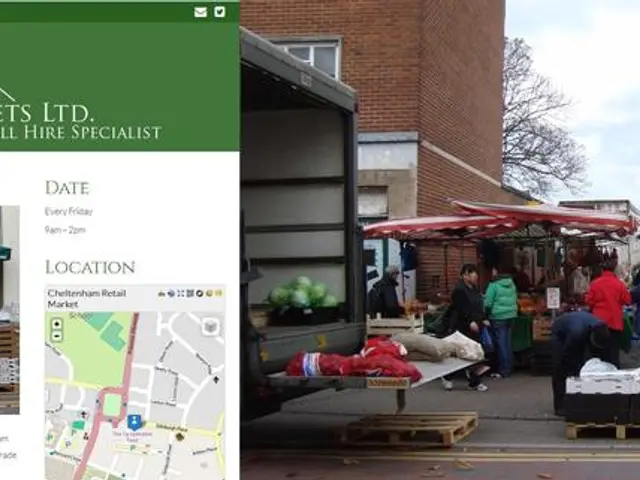Industry operations and client communications are being revolutionized by the emergence of vertical AI agents.
In today's fast-paced business environment, the integration of Artificial Intelligence (AI) is becoming increasingly prevalent. One such development is the emergence of Vertical AI agents, which are designed to address specific industries, processes, or business functions.
McKinsey has noted that the implementation of generative AI in customer service has led to significant improvements. Resolution rates have increased by 14% per hour, while handling times have been reduced by 9%. This demonstrates the potential of AI to streamline operations and improve efficiency.
One of the most prominent examples of AI in action is Amazon's recommendation system. By constantly learning from shopper activity, it provides relevant and well-timed product suggestions, driving sales growth, engagement rates, and customer loyalty.
As Vertical AI evolves, it will integrate with Internet of Things (IoT), blockchain, and generative AI, transitioning towards independent operations. These agents will improve decision-making, handle workflows automatically, and make resource use more efficient.
In the future, these agents will move from reactive to forward-thinking, working with generative AI for creativity and personalization, improving predictions and decision-making through machine learning, integrating with IoT for real-time decisions, using blockchain for trust and security, collaborating with humans, and achieving operational autonomy at scale.
Industries benefiting from Vertical AI agents include highly regulated and quality-critical sectors such as railways, aerospace, defense, and industrial technology. Integrated AI improves supply chain resilience, process transparency, and operational efficiency. Vertical AI agents also offer advantages in recruiting, marketing, customer support, and sales by automating specialized processes tailored to each industry.
Examples of industry-focused AI agents include predictive maintenance agents for manufacturing plants or AI-powered fraud detection for financial companies. JPMorgan Chase uses vertical AI across its worldwide network to detect suspicious activity and catch fraud within seconds.
FedEx uses AI-powered analytics to optimize package routes and predict shipping delays, improving the efficiency of its global logistics network. UPS uses similar AI insights to improve fleet utilization, delivery accuracy, and customer satisfaction.
Vertical AI refers to AI solutions designed for specific industries, processes, or business functions, addressing unique challenges and making them highly effective for industry operations and customer engagement. Maintaining accuracy and customer trust can be achieved by building in continuous learning loops, keeping track of how well things work, and having people watch over important decisions.
Implementing Vertical AI agents requires a structured approach that aligns the technology with business objectives, collects and prepares industry-specific data, picks the right technology, pilots projects, focuses on efficiency and predicting what's coming, trains teams, keeps track, improves, and grows. Quality-based data is essential for machine learning-powered Vertical AI agents, so solid data management practices, including cleanup, bringing everything together, and making it centralized, are crucial.
Expensive implementation costs can be addressed by starting small with pilot projects, going with cloud-based AI platforms, and models that are already trained. Working with older systems can be overcome by using APIs, middleware, and modular setups to connect the old with the new, and updating legacy systems while using AI for operational efficiency.
Resistance to change can be addressed by offering training and skill-building programs that show how AI helps with decision-making and improves workflow efficiency. Appinventiv offers AI agents development services and has direct experience bringing Vertical AI to life, helping businesses across sectors transform digitally through impactful AI implementation.
In healthcare, AI agents are used to process vast amounts of patient data, guiding treatment plans and improving outcomes. UnitedHealth Group is one such example. In power grids, AI is used to balance loads and make distribution work better, cutting waste and operational costs, as demonstrated by Exelon.
Vertical AI agent solutions are built to work alongside the systems and tools you already use in your field, making them flexible for your specific business or operational requirements. By embracing Vertical AI, businesses can streamline operations, improve efficiency, and stay ahead in the ever-evolving digital landscape.
Read also:
- Transforming Digital Inventories in the Food Industry: A Comprehensive Guide for Food Businesses
- 1. Key Points for August 14: Gathering in Alaska, Immigration Enforcement (ICE), Financial service Zelle, Infowars, and Air Canada Airline Incidents
- Automobile manufacturer IM Motors reveals an extended-range powertrain akin to installing an internal combustion engine in a Tesla Model Y.
- Conflict Erupts Between Musk and Apple Over Apple Store's Neglect of Grok




